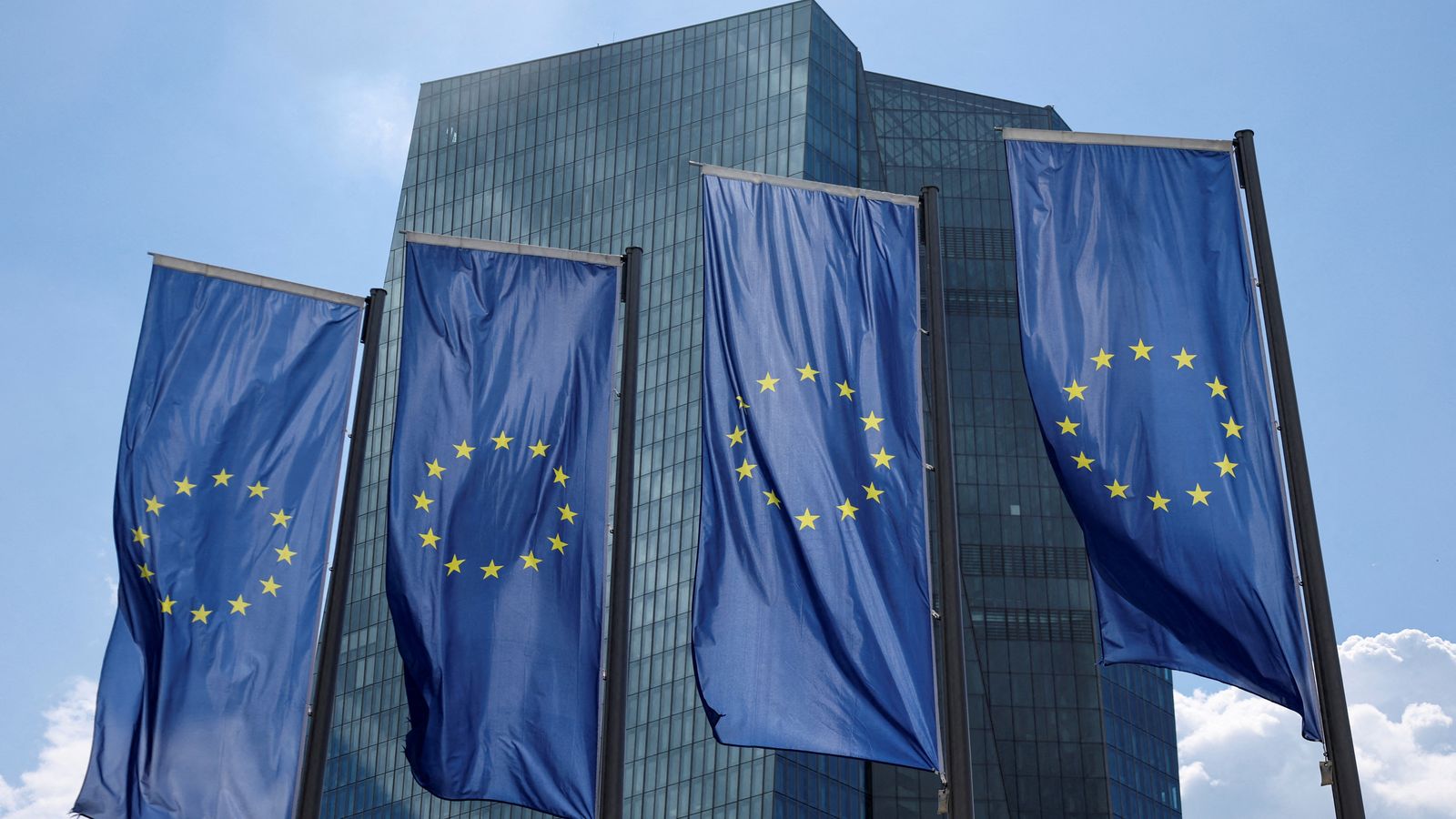Second interest rate cut by European Central Bank as growth falters

The European Central Bank (ECB) has moved to cut borrowing costs again as the inflation threat continues to abate while economic growth falters.
The main deposit facility rate was reduced – as it was in June – by 0.25 percentage points to 3.50%.
The move was widely flagged and anticipated by financial markets though reaction in the money sphere was muted due to a lack of guidance from the ECB on its likely future path for rates.
Money latest: Most stressful jobs in the UK revealed
While December is expected, Bank president Christine Lagarde told reporters it would be data dependent, as the rate of inflation was tipped to rise again during the final quarter of 2024 having eased back towards the 2% target.
The ECB, which governs monetary policy for the 20 nations using the euro single currency, told a news conference: “We are not pre-committing to a particular rate path.”
“We are looking at a whole battery of indicators,” she said, noting that September was likely to deliver a low reading of inflation because of some energy elements falling out of the calculations.
Quarterly projections from the ECB’s staff showed that growth this year will be slightly lower than forecast in June, at just 0.8% for the bloc.
Inflation was still only seen returning more sustainably to target in the second half of next year, with high wage growth levels seen as remaining a risk to the pace of price growth through stubborn services inflation.
The rate cut decision on the ECB’s governing council was unanimous but there is a clear split on the likely direction for rate cuts.
Read more from Sky News:
Revolut founder ‘sells £200m stake’ in fintech firm
John Lewis Partnership eyes higher profits ahead – here’s why
‘Widespread fury’ over plans to shut oil refinery
Some worry about recession risks and are likely to argue for more rate cuts while others see wage pressures weighing on the timing and frequency.
Felix Feather, an economist at abrdn, said: “Importantly, the press statement focused mostly on the inflation outlook, making only passing mention of the Eurozone’s ongoing slowdown in growth.
“We think this reflects caution among policymakers. We expect the ECB to move slowly to normalise policy unless the growth outlook deteriorates rapidly.”
The fluctuations in the euro area’s economy are being witnessed in the US and UK too.
The US Central Bank, the Federal Reserve, is widely expected to follow both the ECB and Bank of England in imposing rate cuts next week.
Financial markets see a chance of two further cuts by the year’s end, with one further move tipped for the UK in either November or December.
Related
Why investing in women is a vital next step for…
Get Nadine White's Race Report newsletter for a fresh perspective on the week's newsGet our free newsletter from The Independent's Race CorrespondentGet our fre
Business secretary signals major shift on electric car policy to…
In a determined effort to retain Nissan’s manufacturing presence in Britain, Business Secretary Jonathan Reynolds has vowed to implement “substantial c
Joint Statement: Business Secretary and Fujitsu Services Ltd
Business and Trade Secretary Jonathan Reynolds today (Friday 7 March) met chiefs for Fujitsu in Tokyo to begin talks over the cost of redress for victims of th
UK foreign secretary backs multilateral defence funding for Europe
UK foreign secretary David Lammy has said that a new multilateral fund will be needed to secure Europe’s defence as he confirmed that Britain is “open to”













